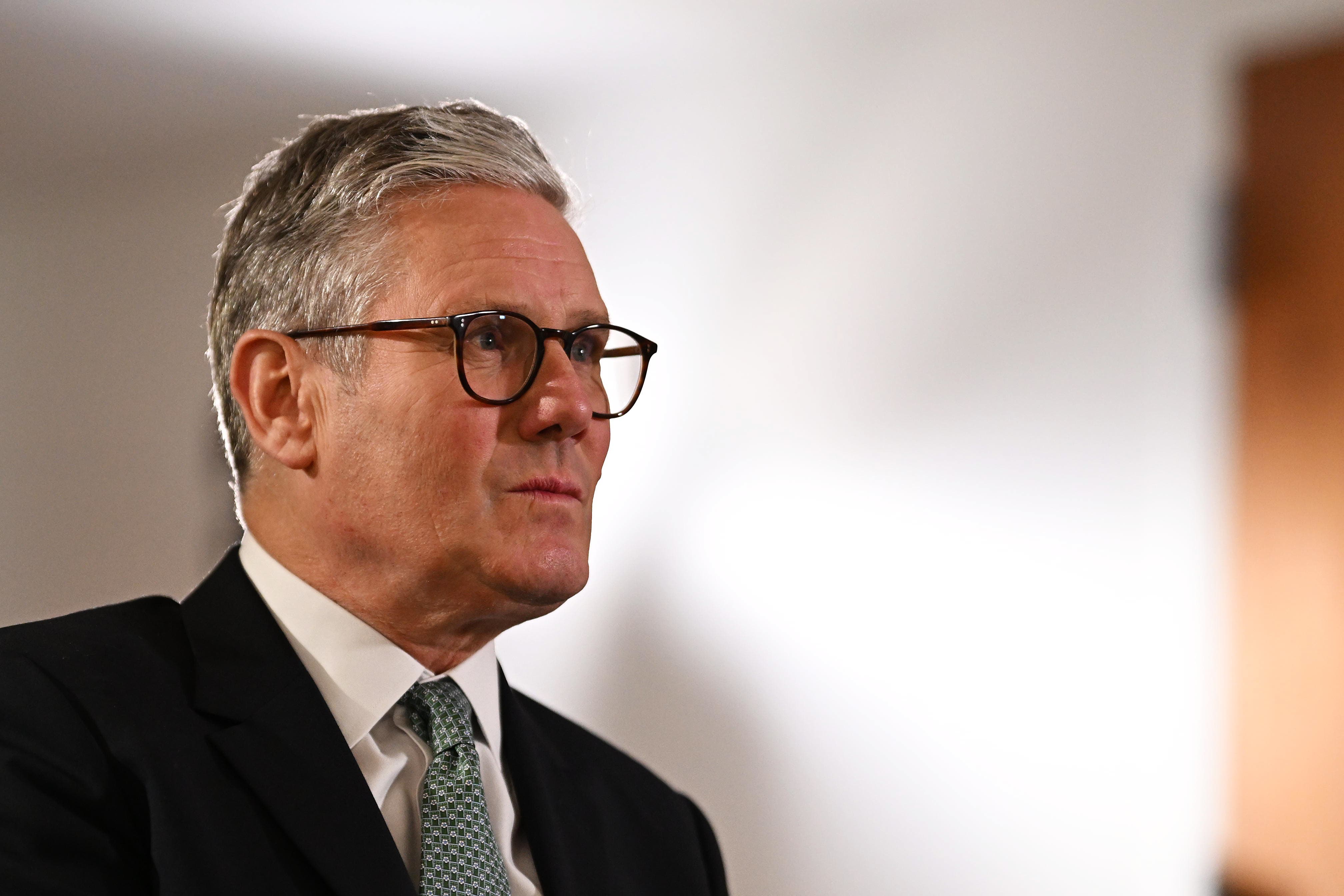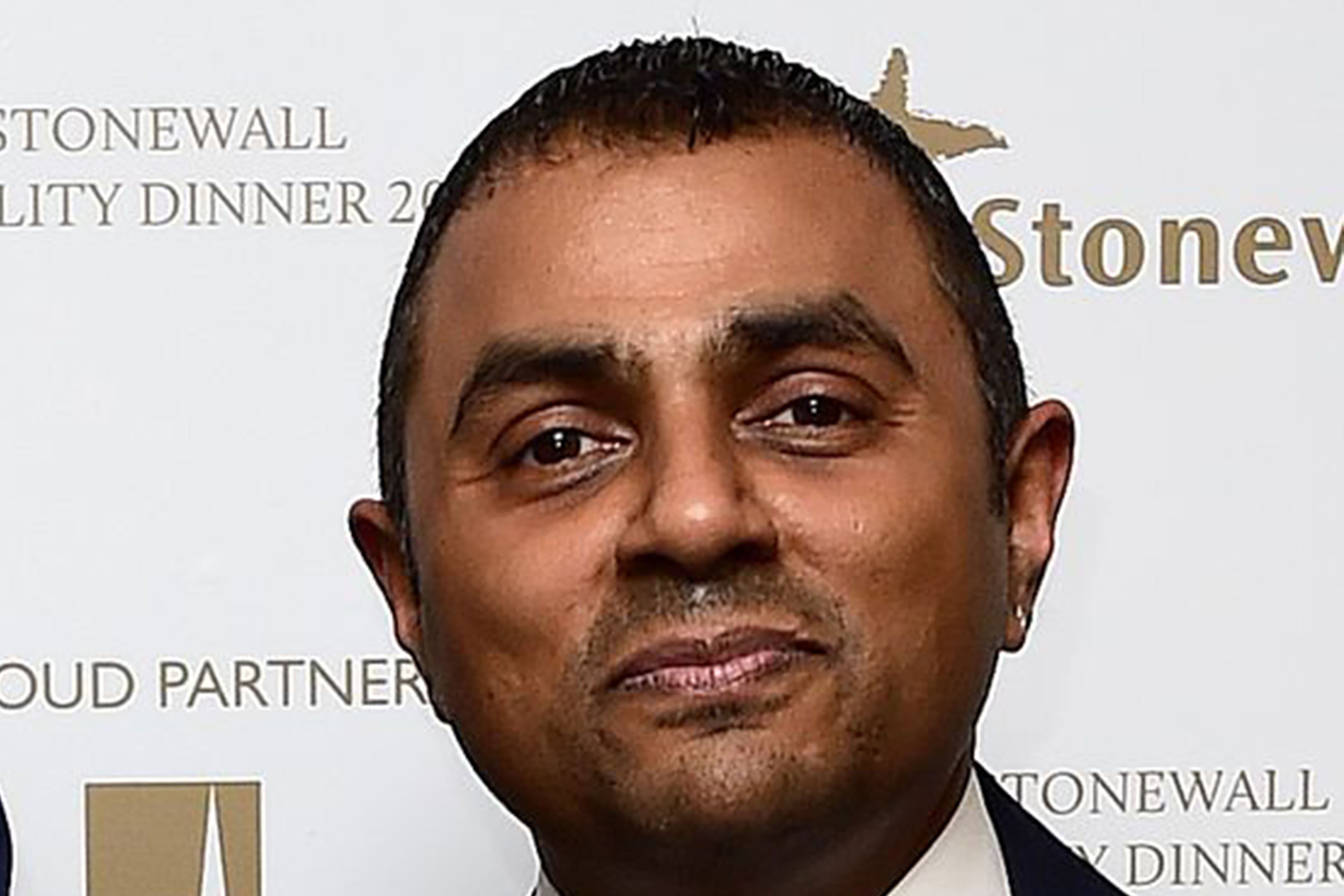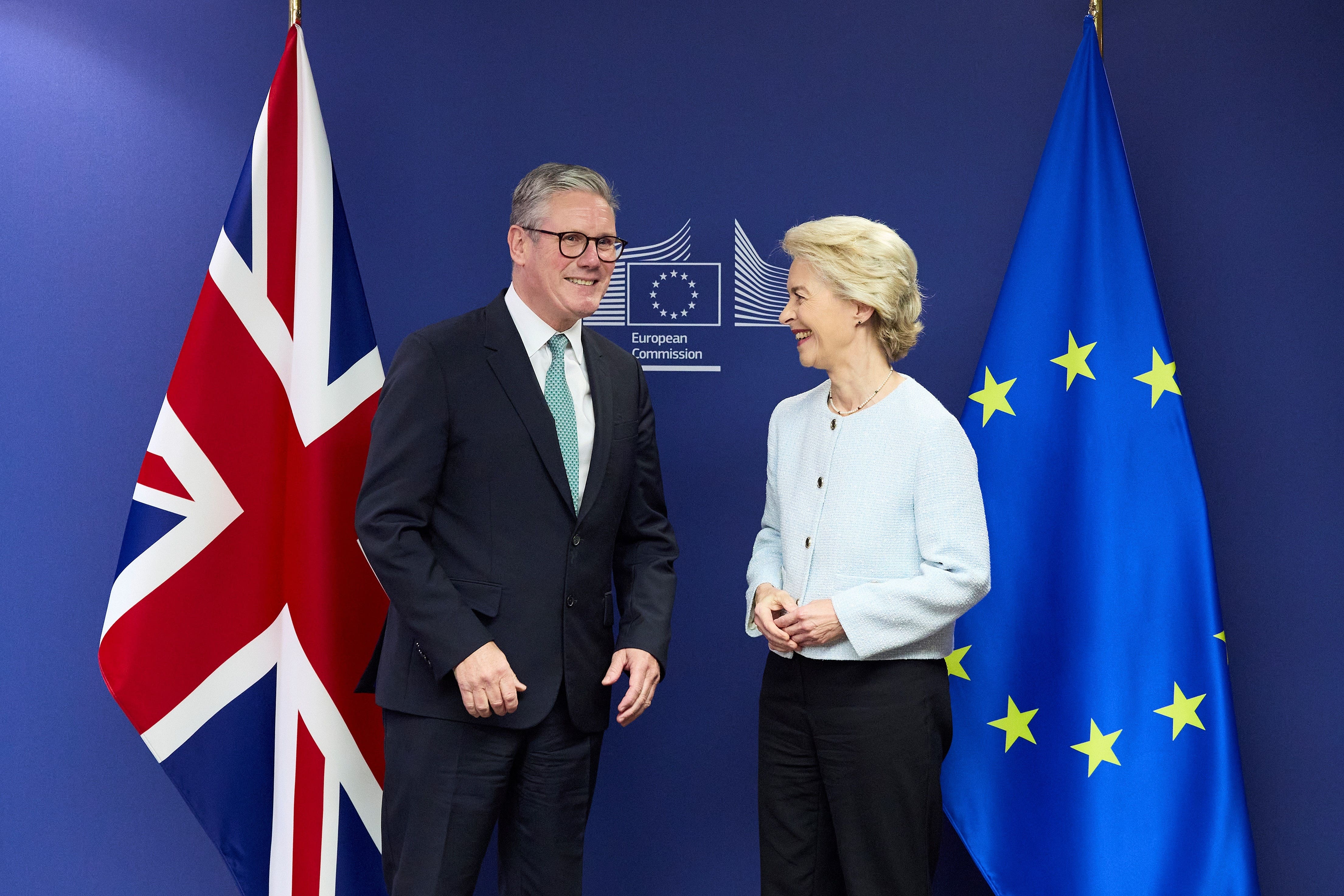Starmer faces reality check over reset with Europe despite hailing ‘very productive’ talks
The PM came away from talks with commission president with plans for further talks this autumn followed by a summit early next year
Your support helps us to tell the story
From reproductive rights to climate change to Big Tech, The Independent is on the ground when the story is developing. Whether it's investigating the financials of Elon Musk's pro-Trump PAC or producing our latest documentary, 'The A Word', which shines a light on the American women fighting for reproductive rights, we know how important it is to parse out the facts from the messaging.
At such a critical moment in US history, we need reporters on the ground. Your donation allows us to keep sending journalists to speak to both sides of the story.
The Independent is trusted by Americans across the entire political spectrum. And unlike many other quality news outlets, we choose not to lock Americans out of our reporting and analysis with paywalls. We believe quality journalism should be available to everyone, paid for by those who can afford it.
Your support makes all the difference.Keir Starmer faced a reality check on his first trip to Brussels as he appeared to come away from the European capital with only an agreement to hold further meetings with EU leaders.
The prime minister travelled to Belgium for talks with European Commission president Ursula von der Leyen, as well as European Council chief Charles Michel and the European parliament’s Roberta Metsola, with a promise to “put the Brexit years behind us” and form a closer relationship with the bloc.
But speaking at a press conference following the discussions, Sir Keir revealed plans for further talks this autumn followed by a summit early next year while unable to answer journalists’ questions on how the “reset” agreement could look like.
Earlier, after what amounted to a meeting about a meeting, Sir Keir and Ms Von der Leyen promised in a joint statement to take forward an “agenda of strengthened cooperation at pace over the coming months”.

But in a sign that Sir Keir’s much-hyped reset of relations with the bloc is yet to get off the ground, the statement added that talks would start with “defining together the areas in which strengthened cooperation would be mutually beneficial”.
It marked a setback for those calling on the prime minister to ease his opposition to a youth mobility scheme with the EU – which would let young people live and work freely across the continent for a number of years.
And, in a blow to the prime minister, the EU repeatedly pointed to Britain’s existing arrangements with the bloc – Rishi Sunak’s Windsor Framework and Boris Johnson’s Trade and Cooperation Agreement (TCA) – calling for the “full and faithful” implementation of those deals. It could suggest there is little room for any major new agreements until existing plans are fully in place. Currently parts of the TCA are not in place, such as repeatedly delayed Brexit checks on EU imports.

Sir Keir took only a handful of questions from journalists after failing to break significant ground in Brussels, and amid renewed controversy over his relationship with Labour peer Waheed Alli.
In his press conference, which was dominated by questions about Lord Alli and the freebie row which has engulfed the party, Sir Keir said: “I have just had a very productive meeting with Ursula von der Leyen.
“We are putting our relationship with Europe on a more solid, stable footing. That’s what the British people want; a return to pragmatic, sensible leadership when it comes to dealing with our closest neighbours.”
He touted the leaders’ joint agreement to hold regular UK-EU summits. And Sir Keir repeated his red lines, promising no return to freedom of movement, the single market or the customs union.
And, asked for any details of issues the leaders talked about, Sir Keir said discussions “did not focus on individual items”, but instead were “setting the framework for the summit”.
It meant no progress was made on youth mobility, and the PM offered no detail of what he would be willing to accept in terms of EU access to the UK’s fishing waters - a key demand of the bloc - and migration. Although Sir Keir did indicate EU access to UK waters, which is due to expire in 2026, would be part of ongoing talks with the EU.

Shortly before taking the stand, Sir Keir confirmed he had paid back more than £6,000 worth of gifts and hospitality he received since entering No 10 after a row over ministerial donations.
The prime minister is covering the cost of six Taylor Swift tickets, four to the races and a clothing rental agreement with a high-end designer favoured by his wife, Lady Victoria Starmer.
Sir Keir’s refusal to discuss a youth mobility deal comes despite The Independent revealing Labour is open to offering it up as part of its plans for more cooperation with the EU.
There is broad support for such a scheme across Europe, particularly in Berlin and other major capitals, but ministers are holding out on agreeing so as not to give up leverage in the talks.
The Liberal Democrats called for Sir Keir to pursue a youth mobility scheme as a priority. Leader Sir Ed Davey said: “After years of Conservative failure, this new government must make repairing our broken relationship with Europe a priority. That starts with a common sense agreement on a Youth Mobility Scheme between the EU and the UK.
“For years, Conservative ministers not only ignored our closest neighbours but treated them with contempt.”
A joint statement after Sir Keir’s meeting with Ms Von der Leyen said two had agreed to meet again this autumn, with a plan for regular EU-UK summits at leader level beginning in early 2025.
“They agreed a stable, positive and forward-looking relationship was in their mutual interests and provided the basis for long-term co-operation,” the statement said.
“They agreed to take forward this agenda of strengthened cooperation at pace over the coming months, starting with defining together the areas in which strengthened cooperation would be mutually beneficial, such as the economy, energy, security and resilience, in full respect of their internal procedures and institutional prerogatives.”

Join our commenting forum
Join thought-provoking conversations, follow other Independent readers and see their replies
Comments